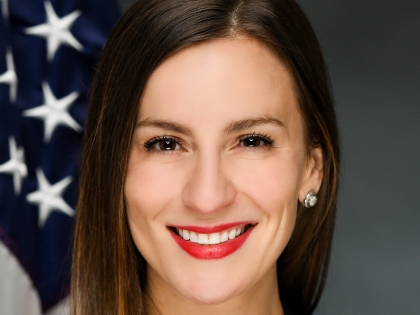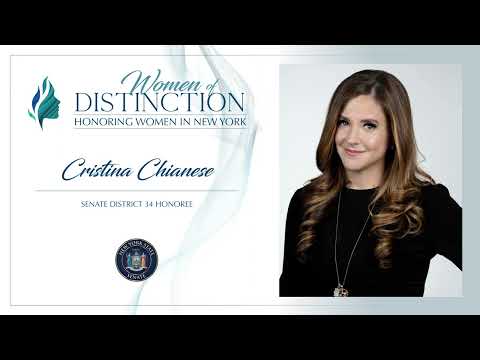
A New Piece of Legislation Could Make New York a Leader in Sustainable Fashion

What will it take for fashion to actually become sustainable? We’ve been talking about it for years, but the harsh truth is that little has changed. Despite our excitement around recycled fibers, regenerative agriculture, upcycling, resale, and new business models, the industry’s emissions are still rising—fashion contributes an estimated 4 to 8.6% of the world’s greenhouse gases—garment workers are still being exploited, and fast fashion giants are still expanding. Much of that comes down to the fact that fashion itself is stunningly unregulated: It is entirely up to a brand to choose better materials, audit its supply chain, and reduce waste. And if it doesn’t? There are few, if any, ramifications. Gen Z is demanding accountability, but there are no measures in place that actually hold brands accountable.
A few decades ago, you may have said that’s simply the nature of free-market capitalism. But if nothing changes, fashion could be responsible for more than 25% of the world’s carbon budget by 2050. The future of the industry—and the planet—relies on slashing that number, and industry leaders believe government regulations and incentives are the only way to do so. Until every company is legally required to do better, progress won’t happen as quickly as it needs to.
Today, New York is taking a big step in that direction with The Fashion Sustainability and Social Accountability Act. Introduced by The New Standard Institute and sponsored by senator Alessandra Biaggi and assembly member Dr. Anna Kelles, the bill proposes that any apparel or footwear brand selling in New York with a global revenue of at least $100 million should be required to set and achieve Science Based Targets; to provide clear, transparent reporting on its energy, greenhouse gas emissions, water, plastic, and chemical management; and to perform mandatory due diligence to avoid labor abuses. Should the bill be passed, failure to meet these requirements would result in a fine of 2% of a brand’s annual revenue, with the funds being directed to environmental justice organizations like UPROSE.
In short, the law would make it so a brand cannot do business in New York unless it proves it is working with the planet and people in mind. It would also eliminate an element of confusion for the consumer; those of us who want to shop responsibly often can’t discern which brands are taking meaningful action, which ones are exaggerating their efforts, and which ones aren’t doing much of anything at all. We’re told to “buy less, buy better,” but are not provided with the information we need to make informed decisions.
“Right now, companies are uncompetitive if they do the right thing,” Maxine Bédat, the founder of the New Standard Institute, explained on a call earlier this week. “That is not a framework for success. By making these regulations the floor of doing business, every company will have to comply, and every company will have to do the right thing. Of course, they can go above and beyond that and show leadership in other ways, too.”
Will executives and designers balk at these requirements after decades of little government oversight? A few might. But Bédat described the bill as inherently pro-business in that it levels the playing field. Stella McCartney is the first designer to endorse the act, and many of her peers have spoken about the need for better regulation and incentives. “We expect the industry will get on board with this because they’ve spoken about how much they care about sustainability,” Bédat says. “It’s really going to make things clear whether the industry is all talk, or if it’s really ready for action.”
While the bill is being introduced in New York state, New York City’s significant market size will effectively require brands around the world to comply. Bédat compared the rollout to the fuel efficiency standards California passed a few years ago, which spurred a chain reaction for automakers around the world and boosted the opportunities for electric car companies like Tesla. “It’s a really apt parallel, because like fashion, Tesla is sexy and of the future,” Bédat adds. “We need to make sure we’re making clothing for the future and business models of the future—not just talking about it.”
Similarly, it was last March when McCartney pointed out the United Kingdom’s 2030 ban on fossil fuel vehicles, arguing that it will accelerate the nation’s switch to electric cars and green energy. The fashion equivalent, McCartney posits, would be introducing tax incentives that encourage brands to use faux leather; at present, those materials are often met with a higher import tax than animal leather. “There need to be policy changes. It isn’t just about the physical product, it’s about working hand-in-hand with people who can safeguard this for the future,” she said.
Legislation can take years, but Bédat is hopeful the bill will be passed by the end of the 2022 legislative session in June. Today kicks off the campaign. Over the next six months, we’ll be watching to see which brands and industry players throw their support behind it. “We talk about innovation all the time in fashion,” she says, “but this is the kind of regulatory innovation that could advance the work that needs to be done and the collaboration that needs to happen.”
